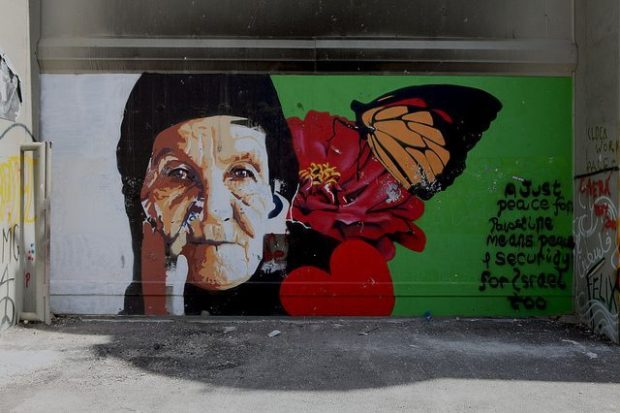
The Oct. 7 surprise attack by Hamas. Israel’s retaliation in Gaza. Horrible images. Emotions are sky-high. Fear. Revulsion. White-hot anger. Uncontrollable grief. We can let all this emotion control us in a negative way. Or we can use this emotion for good. It’s not easy.
Traumatized people tend to lay all the blame on the other side, not allowing any hint of evil on “our side.” We are currently witnessing a lot of demonizing and dehumanizing, the prelude to even more vicious acts.
Rhetoric that calls the other side “animals,” “savages” or “Nazis” is language that leads to mass murder and genocide. Think the Indigenous peoples of the Americas, the Armenians, European Jews. Think of how the Americans dropped atomic bombs on the (non-white, non-European ancestry) Japanese.
Mass murder of civilians and genocide is a cynical, bloody and supremely shameful business. We don’t want to go there in Gaza.
Some history to consider:
- We are experiencing collective trauma. It’s not private.
- Collective trauma is not just one event; it carries the cumulative weight of atrocities and injustices from the past.
- Collective trauma pushes us to believe “the others” have no humanity and must be wiped out. It is a radical denial of the humanity of others.
- The “Holy Land” has a long history of outrages and atrocities, with plenty of blame to go around. No side is as innocent as the fresh-fallen snow. And no side is totally evil.
- There is no moral justification for targeting civilians for murder and hostage-taking. As bad as the Hamas attack was, it did not happen in a vacuum.
- We need to be honest about our history. Both the United Kingdom and the United States have had key roles in creating the present crisis.
Some other facts to keep in mind:
- Hamas is not “the Palestinian people.” The Palestinian people as a people are not homicidal maniacs.
- Benjamin Netanyahu and the Israeli hard-liners are not “the Israeli people.” There are many Israelis who wish to live honorably and peacefully with Palestinians.
- Israel is an apartheid state, like South Africa used to be, with laws structured to advantage Jewish citizens and to disadvantage and humiliate Palestinians every day of their lives.
- Those who advocate for peace on each side of the border are opposed by hard-liners.
- For the most part, our media sources tilt heavily in favor of Israel. And in war, the first casualty is truth. There’s a lot of disinformation and fake news rummaging around. Let us seek to exercise wisdom in our media intake.
We need to look honestly at how religion and theology have been and are being misused to make the situation worse.
- Religious fundamentalism and religious nationalism—whether in Jewish, Muslim or Christian forms—are very much playing into the present crisis. Dogged, uncompromising beliefs in religious supremacy are practically guaranteeing continuing conflict.
- Among those beliefs is the failure of Jewish and Christian fundamentalists to accept that the “Israel” of old is completely different from the modern post-1948 state of Israel. This dangerous belief “fits” Western (Judeo-Christian) ideas of white supremacy and a permission from God, just like in the Bible (see the Book of Joshua) to displace Indigenous peoples and to colonize the Earth with “settlers” who take over the land and its resources. The “settler colonialism” of European Jews moving to Israel in the 20th century mirrored the European powers’ “settler colonialism” and other imperialistic projects from the 15th to the 20th centuries.
- Of particular concern are apocalyptic passages in Muslim sacred texts and in the Bible that appear to glorify violence against “infidels” in the Last Days.
Key at this point:
- Pressure our leaders to de-escalate the conflict.
- Advocate for human rights and civil rights for Palestinians.
- Forswear apartheid systems, wherever they are.
And, if we are Christians or align somewhat with the Christian tradition, let’s not be knee-jerk war-makers. Instead, let’s go deep into the tradition to affirm the peacemaking mission of Jesus and his disciples.
To do this, many of us will have to push hard against our cultural and religious conditioning in which our sympathy and empathy is easily granted to Israel, but only with great difficulty given to the Palestinians.
